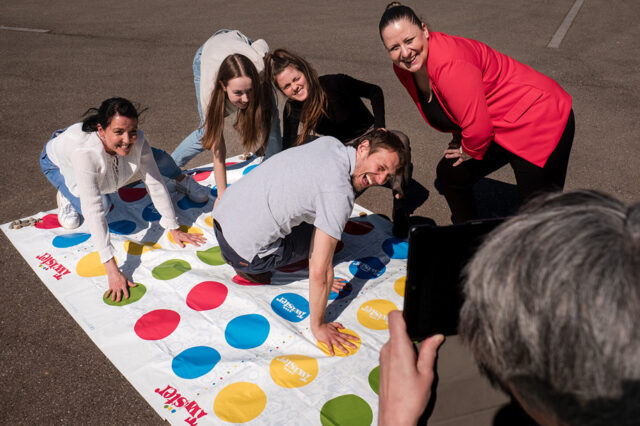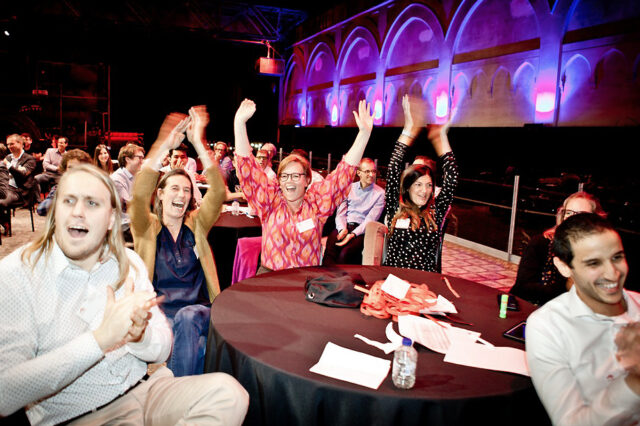Humour breaks down hierarchies and creates lasting memories. Popular examples:
- Quiz or game shows with individual questions from everyday team life.
- Improvisational theatre or karaoke encourages spontaneity and makes everyone laugh.
- “Office Olympics” (office chair races, file folder throwing) for small budgets.
- Virtual escape games are perfect when colleagues work in different locations.
According to the Randstad Work Barometer 2024, humorous events significantly improve employee retention because they associate positive emotions with the employer.
A successful team event usually follows three phases:
- Arrival & warm-up – short icebreakers to help everyone get to know each other.
- Main activity – whether it’s an outdoor challenge, workshop or creative task, the focus is on collaboration.
- Reflection & transfer – a short conclusion with feedback so that experiences can be applied to everyday work.
BITOU, for example, relies on moderated evaluations here: the team recognises what worked during the event – and transfers these insights into their daily collaboration.
Team events do not necessarily have to be expensive – their impact comes from the design and quality of the time spent together, not from high costs. According to Deloitte Human Capital Trends 2025, even small, well-structured rituals increase productivity by +21%, stress resilience by +230% and focus by +92% when teams regularly take breaks or “slack” time together.
Examples of free ideas:
Walking meetings in the park: promote exercise, creativity and informal exchanges.
Internal knowledge exchange: Everyone shares their expertise on a hobby or skill in 10 minutes – strengthening learning and networking.
Photo or cooking challenges via team chat: particularly effective for hybrid or remote teams.
Micro-break rituals: 5 minutes of stretching or focus exercises together, twice a day – proven to improve performance (Source: Deloitte)
Social commitment: organising a fundraising campaign or clean-up day together creates a sense of purpose and pride.
Important: Even with free formats, it is important to avoid overload from too many meetings. According to Deloitte, unnecessary coordination can cost up to £25,000 per employee per year, so it is better to have a few carefully planned activities than too much “compulsory socialising”.































